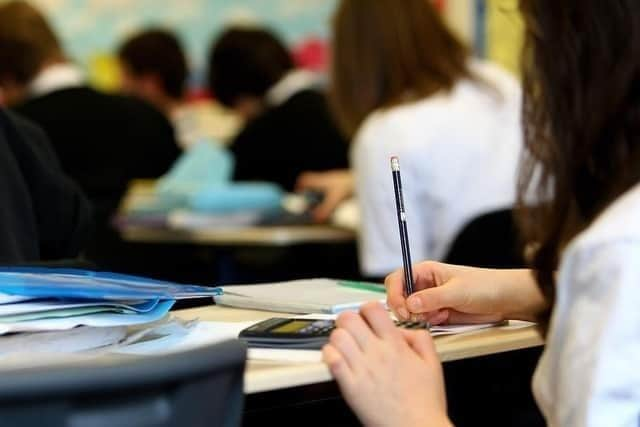Public health report shows issues of inequality, wellbeing and weight among Doncaster’s young people
and live on Freeview channel 276
The Director of Public Health’s annual report for Doncaster has highlighted key issues amongst young people including inequality, wellbeing and weight.
Director Dr Rupert Suckling formulates the report each year, focusing on different elements of health in the borough.
Advertisement
Hide AdAdvertisement
Hide AdIt will be presented to full council next week by acting director Rachael Leslie who has temporarily taken over the role.


In terms of birth, the report reveals that 12 percent of Doncaster mothers smoked through pregnancy in 2022/3, for 356 in total.
Teenage pregnancies continue to decline year upon year, with just 35 babies being born to people aged 17 and under in 2021/22.
Tooth decay remains a significant problem, with one third of five year olds presenting tooth decay in 2021/22.
Advertisement
Hide AdAdvertisement
Hide AdThe number of tooth extraction clinics in Doncaster is among the highest nationally.
Doncaster continues to present higher than average levels of childhood weight including obesity.
Some 25.1 per cent of reception age children are overweight or obese compared to 21.3 percent nationally.
Some 40.7 percent of Year 6 children are overweight or obese, compared to a national 23.4 percent average.
Advertisement
Hide AdAdvertisement
Hide AdSchemes to improve children’s physical activity appear to be improving statistics however, with 79 percent of primary pupils having a positive attitude towards exercise.
The report shows that health issues continue to disproportionately affect young people from lower socio-economic backgrounds.
Young carers, children in care and young people living in the criminal justice system are more likely to experience health inequalities.
Groups such as LGBTQ+, disabled and ethnic minority people are also disproportionately affected.
Advertisement
Hide AdAdvertisement
Hide AdAlmost 21,000 children in Doncaster continue to live in poverty.
Some 13,828 children qualify for free school meals, meaning that their household income is less than £7,400 per year.
Pupils with long-term illness or disabilities are more likely to suffer with poor sleep, which affects 19 percent of this group compared to five percent of children without illness or disabilities.
In terms of wellbeing, 29 percent of young carers and 31 percent of LGBTQ+ pupils say they are ‘not happy’ with their lives, the highest figure among all groups.
Advertisement
Hide AdAdvertisement
Hide AdChildren and young people, who make up 23 percent of Doncaster’s citizens, have been the focus of several different schemes throughout 2022/3.
At the start of 2023, the council established a Fairness and Wellbeing Commission with the aim to assess the extent and causes of inequalities.
A long-term study of over 1,000 people called Born and Bred in Doncaster began in 2022, which will show the health factors of babies born in the borough over several decades.
Schemes such as the development of family hubs and Shaping Stainforth will engage families to discover their public health needs.
Advertisement
Hide AdAdvertisement
Hide AdOther projects include encouraging active travel through Get Doncaster Moving and social prescribing, and the movement to make the city ‘age friendly’.
The report summarises that “compassionate, prevention focussed approaches” should be taken to address the wider determinants of young people’s health.
Equality and inclusion will be key focuses moving forward to close the gap for children who face additional health challenges.
Comment Guidelines
National World encourages reader discussion on our stories. User feedback, insights and back-and-forth exchanges add a rich layer of context to reporting. Please review our Community Guidelines before commenting.